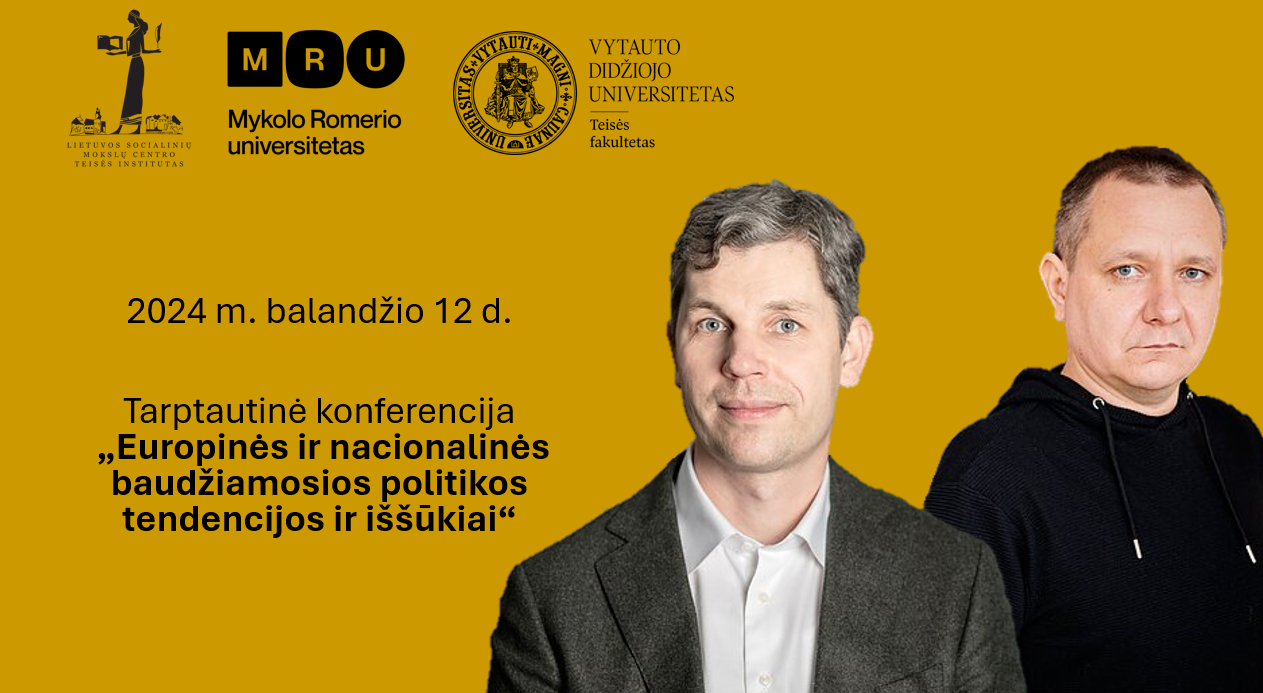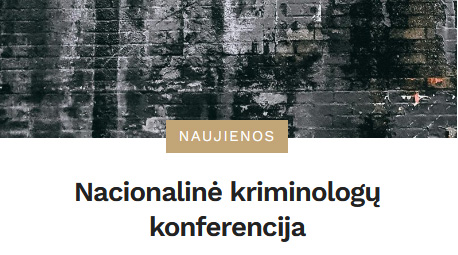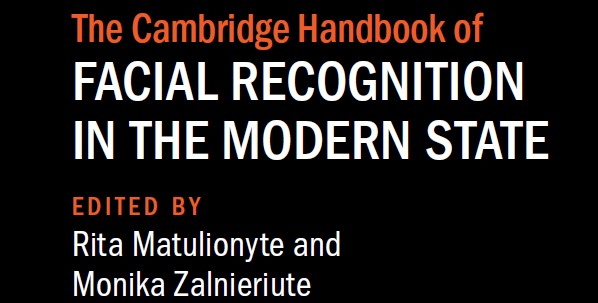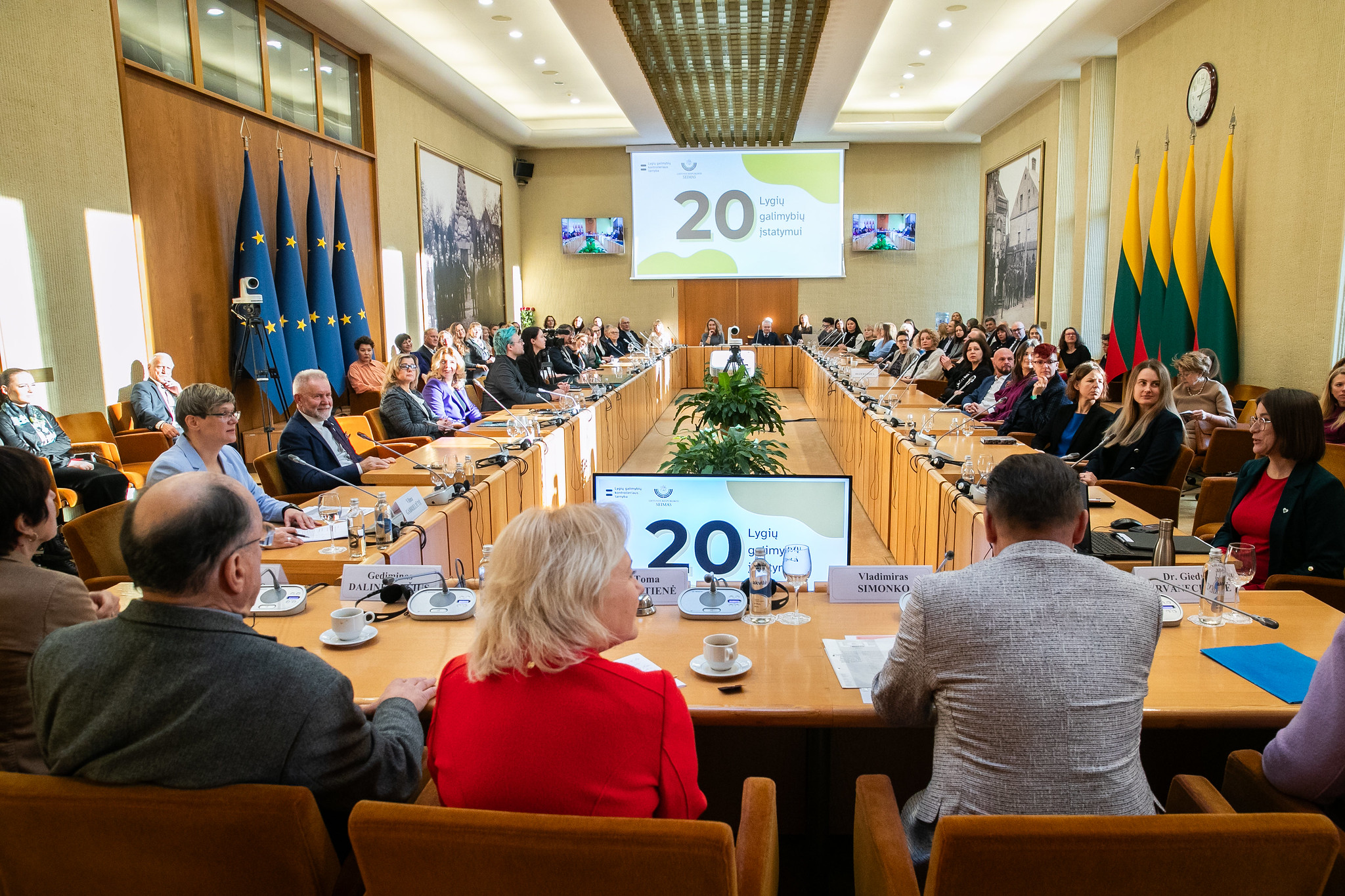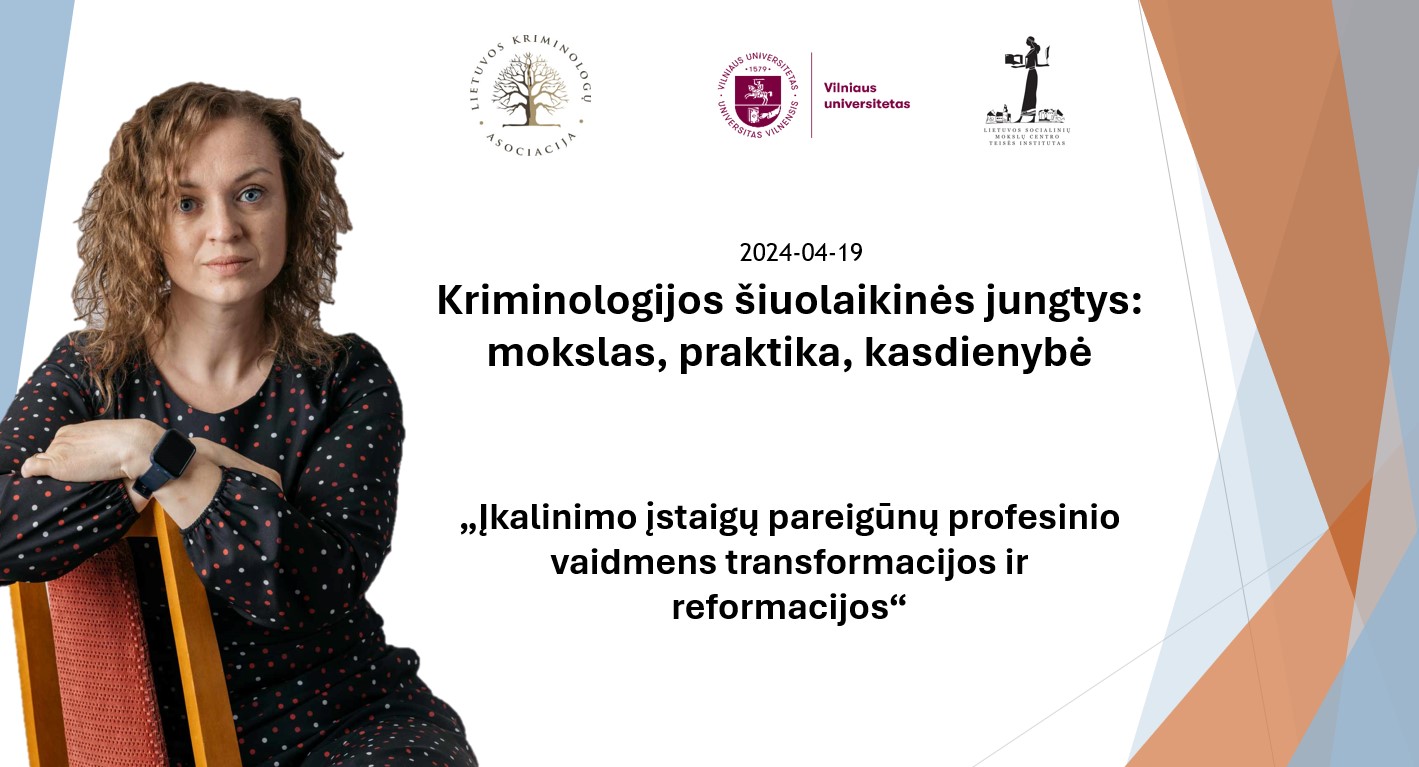
On April 19, 2024, the National Conference of the Lithuanian Criminologists’ Association “Contemporary Connections in Criminology: Science, Practice, Everyday Life” took place. The annual event was attended by scientists and practitioners from various fields, who aimed to reveal the role of technology in criminology and discuss about the perspectives and threats of technology in law enforcement.
At the conference, scientists from the Law Institute of the Lithuanian Centre for Social Sciences also presented their reports. Dr. Rūta Vaičiūnienė in her presentation “Transformations and Reformations of the Professional Role of Prison Officers” introduced and compared the prison models of Western and post-Soviet countries, highlighting the differences in the roles of prison officers.
Additionally, the researcher presented the latest data from the focus group discussion of the project “Changes in prison officers’ professional roles within the shifting custodial sentencing policy and practice” (PRISTA), funded by the Research Council of Lithuania. The findings revealed the daily life of prison officers: collaboration among colleagues, the implementation of resocialization goals, relationships between officers, and internal professional roles’ conflicts of prison staff.
After presentation, discussions with conference participants revolved around the assumptions of the final research results.



